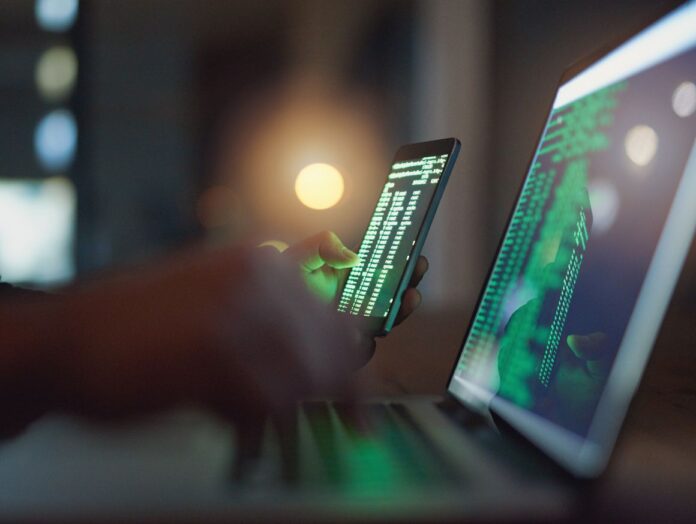China on Tuesday urged the US and Britain to stop politicizing the issue of cybersecurity, slandering and smearing China, and imposing unilateral sanctions on the country, according to Reuters.
“It is pure political manoeuvring for the United States and the United Kingdom to rehash the so-called cyberattacks carried out by China and to sanction Chinese individuals and entities,” Chinese foreign ministry spokesperson Lin Jian said at a regular press briefing.
“China is strongly dissatisfied with this and firmly opposes it,” he said.
US and British officials on Monday filed charges, imposed sanctions, and accused Beijing of a sweeping cyberespionage campaign that allegedly hit millions of people.
Authorities on both sides of the Atlantic nicknamed the hacking group Advanced Persistent Threat Group 31 or “APT31″, calling it an arm of China’s Ministry of State Security.
The Chinese Embassy in London called the charges “completely fabricated and malicious slanders.”
“Previously, China had made technical clarifications and responses to the so-called APT31 information submitted by the British side. It clearly shows that the evidence provided by the British side is insufficient and the relevant conclusions lack professionalism,” said Lin.
“Regrettably, however, the British side has not responded further since then,” he added.
Britain has also accused Chinese hackers of trying to break into email accounts of British lawmakers who were critical of China.
Lin said China has made solemn representations to all relevant parties, „and will take necessary measures to safeguard China’s legitimate rights and interests.”
Several other countries have also lobbed hacking and cyberattack allegations against China, all of which the country has denied.
The New Zealand government said it had raised concerns on Tuesday with the Chinese government about its involvement in a state-sponsored cyber hack on New Zealand’s parliament in 2021, which was uncovered by the country’s intelligence services, according to Reuters.
The revelations that information was accessed through malicious cyber activity targeting New Zealand’s parliamentarian entities comes as Britain and the US accused China of a wide-sweeping cyber espionage campaign. Both New Zealand and Australia have condemned the broader activity.
“Foreign interference of this nature is unacceptable, and we have urged China to refrain from such activity in future,” New Zealand’s Foreign Minister Winston Peters said in a statement.
He said concerns about cyber activity attributed to groups sponsored by the Chinese government, targeting democratic institutions in both New Zealand and the United Kingdom had been conveyed to the Chinese ambassador.
A top New Zealand intelligence official told a parliamentary committee on Tuesday that seven of its citizens had provided training to China’s military in the last 18 months, in what he said was a “major national security risk.”
A spokesperson for the Chinese Embassy in New Zealand said in an email that they reject “outright such groundless and irresponsible accusations” and have expressed their dissatisfaction and resolute opposition with New Zealand authorities, Reuters reports.
“We have never, nor will we in the future, interfere in the internal affairs of other countries, including New Zealand. Accusing China of foreign interference is completely barking up the wrong tree,” the spokesperson said.
US and British officials late on Monday filed charges, imposed sanctions, and accused Beijing of a sweeping cyber espionage campaign that allegedly hit millions of people including lawmakers, academics and journalists, and companies including defence contractors.
American and British officials nicknamed the hacking group responsible Advanced Persistent Threat 31 or “APT31″, calling it an arm of China’s Ministry of State Security. Officials reeled off a laundry list of targets: White House staffers, U.S. senators, British parliamentarians, and government officials across the world who criticized Beijing. Defence contractors, dissidents and security companies were also hit, officials from the two countries said.


